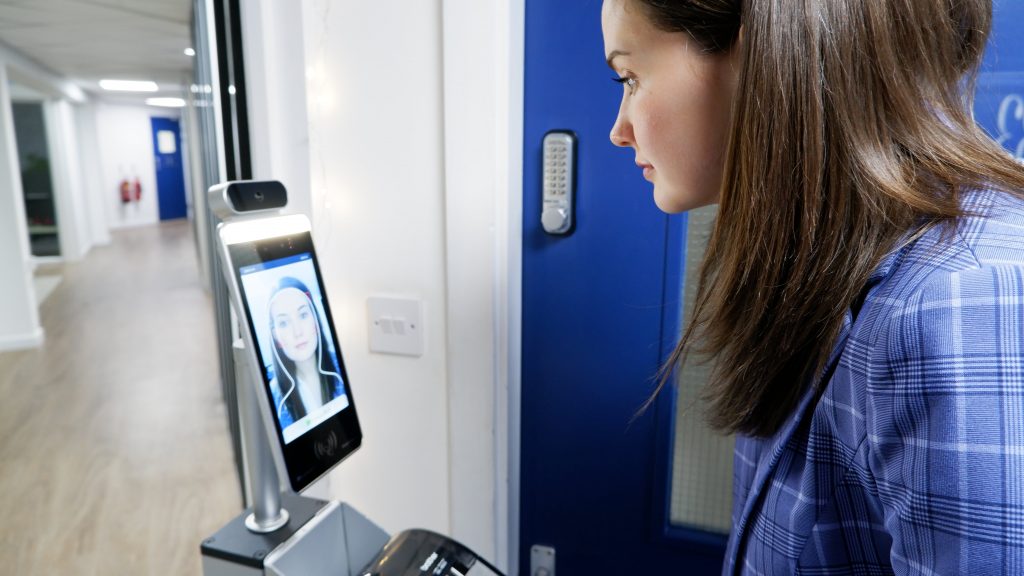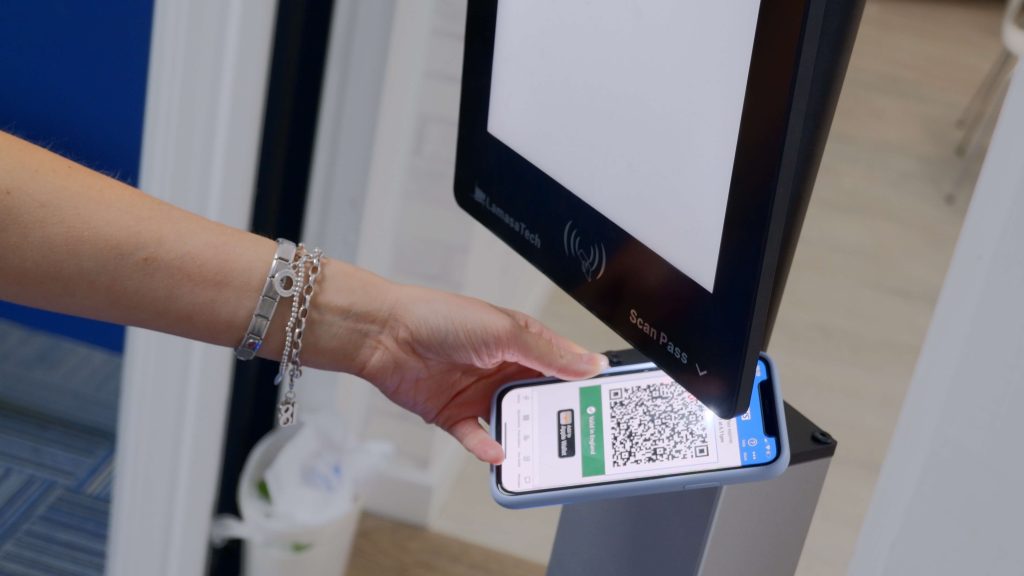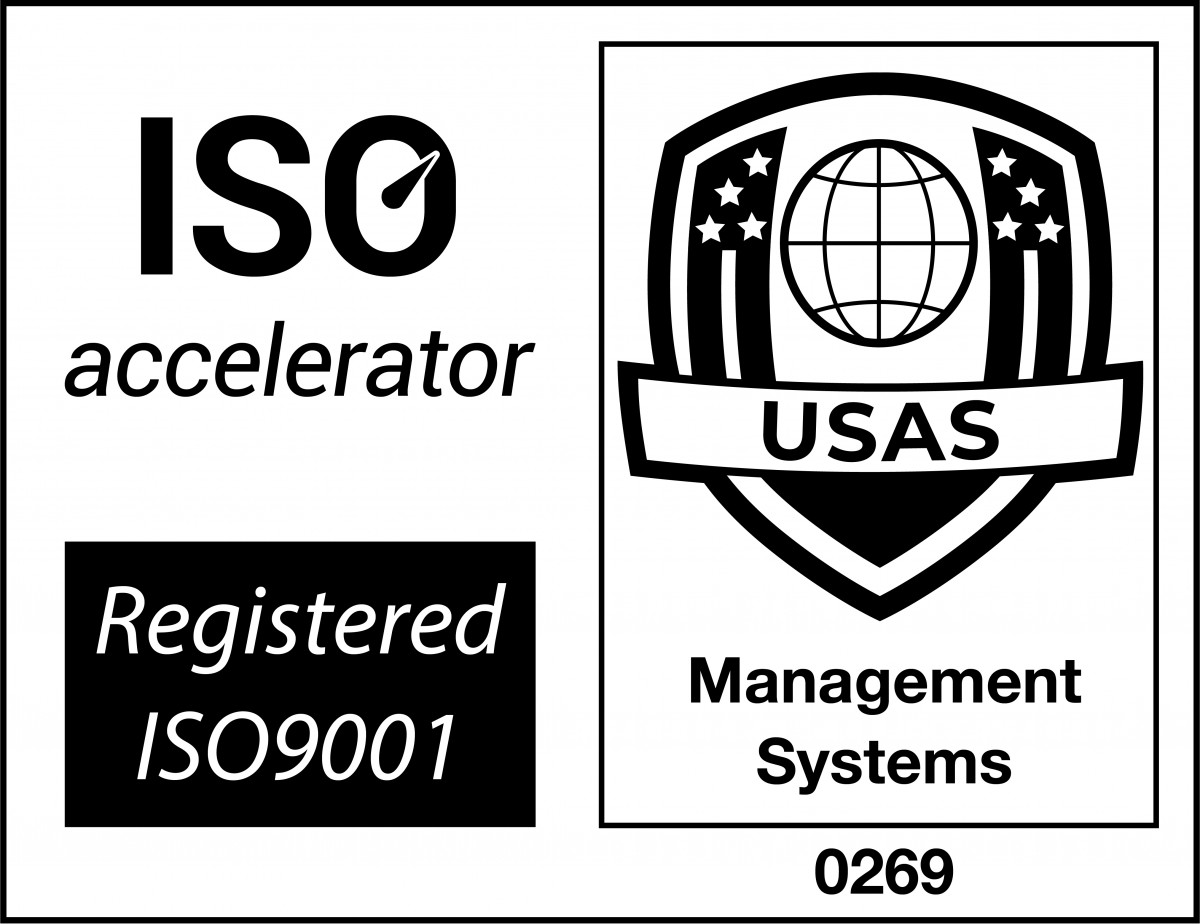Technology has been a key factor in the return of international travel. Developments such as temperature screening kiosks and vaccine tracking have helped identify potentially infected travellers. By helping to prevent the spread of infection, these checks aid in reassuring the public that it is safe to travel after COVID-19.
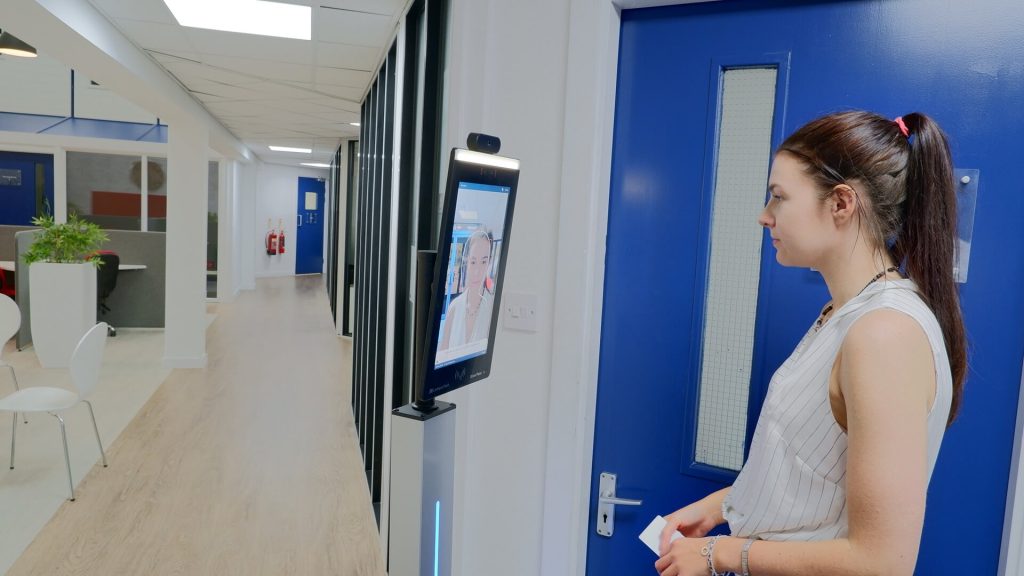
The travel industry was one of the hardest hit by the pandemic. International travel specifically saw a drastic decrease. In April 2020 worldwide international arrivals dropped 97% from the previous year. Greater London had just 20% of available rooms occupied in July 2020 compared to 90% the year before. The industry ground to a halt as COVID spread and governments closed their borders.
This crisis forced the travel providers to develop to survive. As governments slowly started opening up their borders again, they and the travelling public needed assurances that it was safe. Willie Walsh, IATA Director-General said, “The challenge for 2022 is to reinforce passenger confidence by normalizing travel.”
Most people had a journey cancelled during the pandemic, but what will that trip look like now? Find out how your journey has changed below.
In a hurry. Jump to:
Technology
Human interactions
Packing
Keep up with policies
Ready to go?
Technology
The COVID pandemic has pushed the travel industry to implement new technologies to protect people who travel after COVID-19 and reassure them. Temperature kiosks will be the most prominent in your new journey experience. Many airports implemented this technology in May 2020. At that point, the TSA had travel numbers of 134,261, by the end of June 2020 that had risen to 626,516. Part of this sharp increase was due to temperature checks creating a feeling of safety.
Locations such as shopping centres and restaurants may also require a temperature check before you enter.
These kiosks have an infrared camera that reads your temperature and can be an entirely non-touch process to help stop the spread of infection. If you give a high reading then you will be prevented access. At an airport you would then be taken for further testing, to determine if you are infectious and should not travel. Airports may also have mass temperature reading cameras that are capable of checking the temperature of a group of people as they walk through. IATA (The International Air Transport Association) has said that the return of travel is reliant on technology such as temperature scans and detailed health questionnaires to identify sick travellers. IATA represents nearly 300 carriers in 120 countries, so most airports around the world will be following their advice.
As well as identifying potentially infected travellers, some kiosks, like the LamasaTech Zentron Kiosks, can verify vaccination status. This allows the airport or business to require anyone who enters to scan proof of vaccination. Having only vaccinated travellers enter is another layer of protection against COVID.
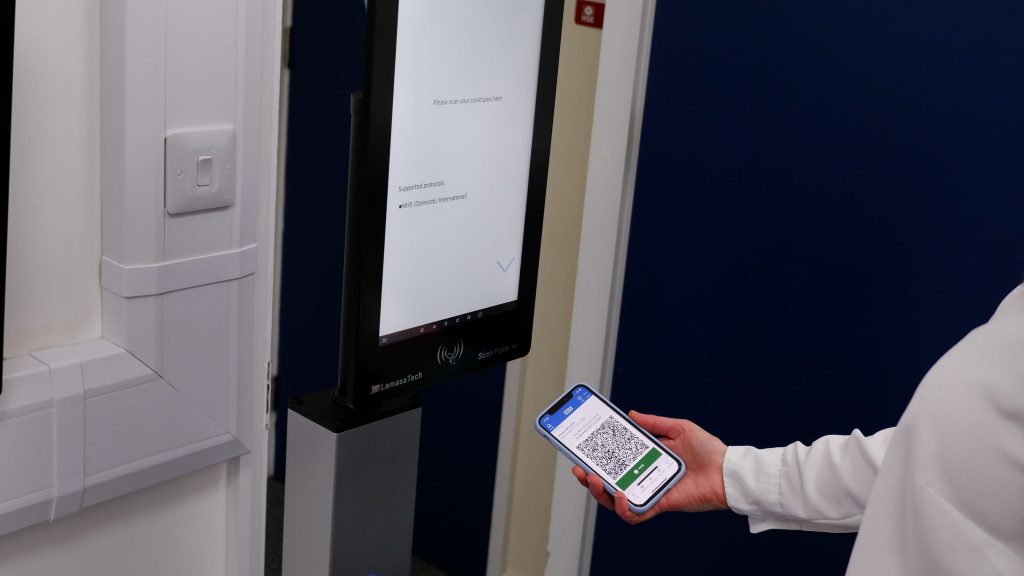
Temperature kiosks like this also help with contact tracing. When someone uses one of these devices their details are stored in the log. If someone on a flight has tested positive, then the airport will be able to check the log to see who else was scanned at the same time.
Questions and requirements on these kiosks can be edited at any time.
Should governments decide vaccine passes are not needed, that prompt can be turned off. If they are then mandated again, the requirement can be added back to the sign-in process.
Human interactions
A significant change in your journey will be a decrease in human interaction. To maintain social distancing measures many systems have been automated. You’ll notice far fewer people on-site at airports. Gatwick Airport reported a 70% reduction in activity between 2019 and 2020. On arrival at a transport hub, you’ll be greeted by a temperature scanning kiosk to gain entry. You’ll also be advised to complete as much of the check-in process as you can before you arrive. Printing boarding passes and bag tags yourself means you won’t need to talk to someone at the airport. By removing another person from the check-in process it reduces the chance of spreading infection.
Packing
When checking you’ve packed everything before a trip it won’t be just to make sure you’ve got your passport. Hand sanitiser will be a new addition to your baggage. Even with fewer people travelling, a transport hub is still a hotspot for potentially picking up an infection. Hand sanitiser will help to kill the germs that your hands pick up from public surfaces, like doors or handrails. According to research by the Institute for Hygiene and Environmental Medicine, Germany, you need a hand sanitiser with 80% ethanol to effectively stop the COVID virus.
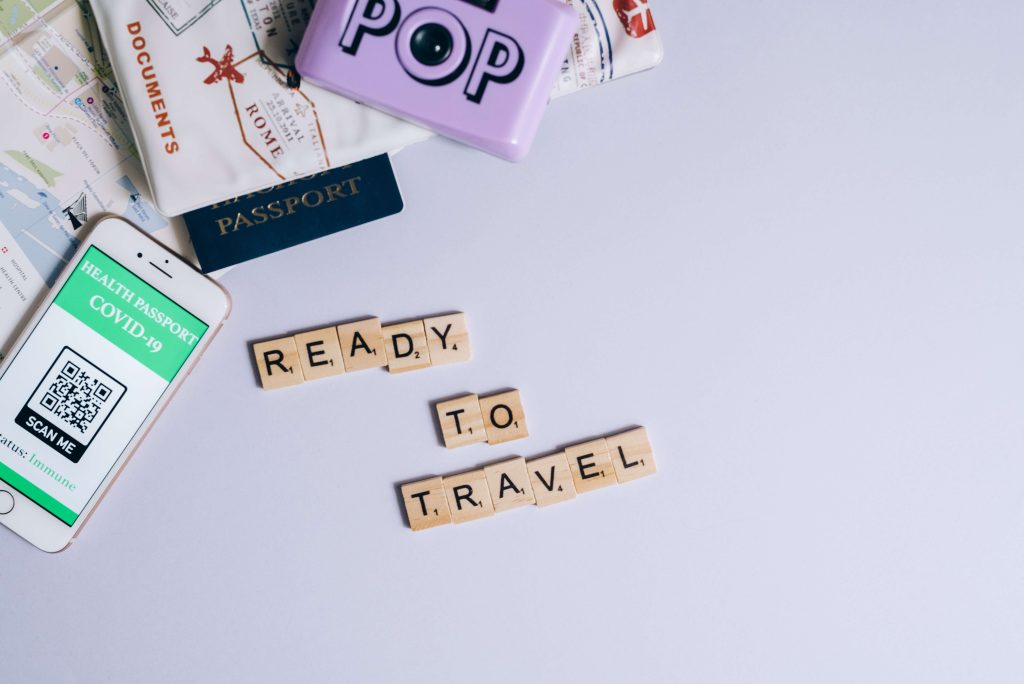
Something else you’ll be packing extra now is face masks. Mandates on wearing face coverings change frequently so it’s best to have some with you. The UK government still advises that face coverings are worn in crowded or enclosed areas, such as on public transport.
Making sure you have your vaccine pass available is now also part of your packing process. This can be accessed on your phone as a QR code or printed off. Without this, you could be refused access to international transport. Some countries you fly to may also require a recent negative test result too. Although it may seem like this will add to the entry process at an airport or a building complex, a LamasaTech temperature scanning kiosk can do it all in one.
It will check the user’s temperature and then ask for a vaccine pass that can be scanned on the device. Once completed this information will be stored for contact tracing purposes.
Keep up with policies
Legislations around COVID change constantly as new variants and outbreaks happen. Booking a trip, therefore, brings the risk that it could be cancelled at the last minute by a government preventing travel. To prevent losing out you’ll need insurance. As travel opened back up, insurance providers added COVID related policies such as if you test positive or if borders are closed before you travel.
Keeping up with the government’s current policies will be key to travel. The UK government is constantly changing its rules for travelling to other countries. The Global Travel Taskforce 2021 recommended a traffic light system to restrict travel to COVID hotspots. This is updated as countries recover or suffer from outbreaks.
Following that, you’ll need to understand the policies of your destination. Entry requirements will be the most important information here. Some countries still require you to isolate yourself for a period on arrivals, such as South Korea, Thailand and Indonesia. Others may require proof of a negative test and stricter mask-wearing rules.
Ready to go?
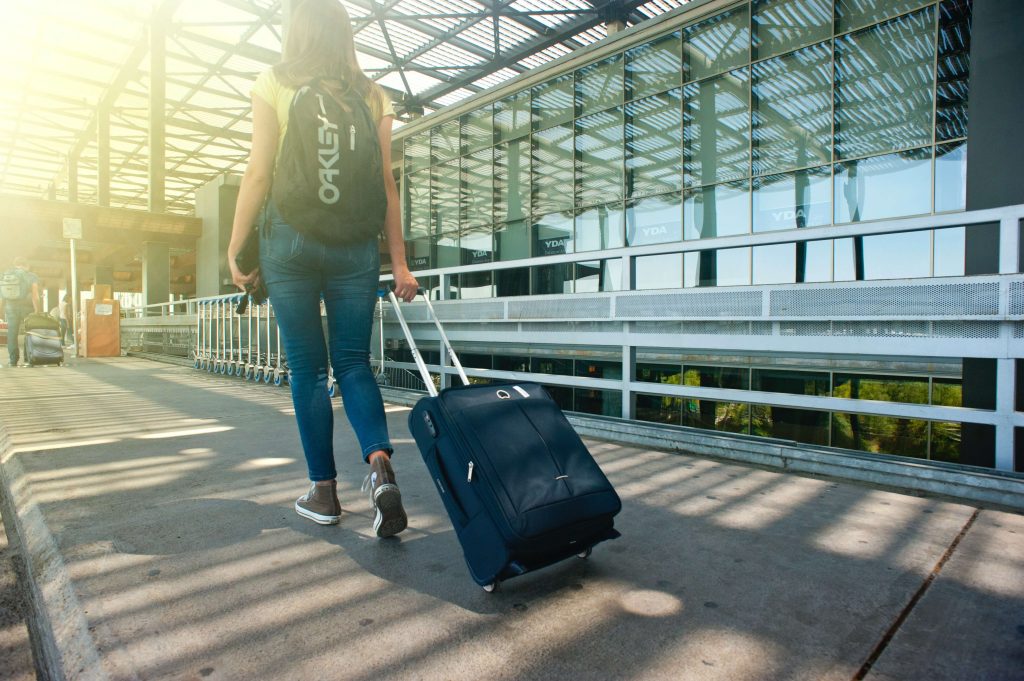
The international travel industry has had to evolve to survive during the pandemic. Demand dropped as borders closed and people didn’t feel safe travelling with large groups of people. The industry reacted by modernising its technology to reassure travellers. Temperature scanning kiosks are now what greet you at airports and many building complexes. These kiosks can also sign a user in and, in the case of the LamasaTech Zentron kiosks, validate proof of vaccination.
Your passport is no longer the only important document you’ll need to travel. Now you need to remember your vaccine pass and a recent negative test result if needed.
If you’d like to learn more about the temperature scanning kiosks that you’ll see all around as you travel click here.

